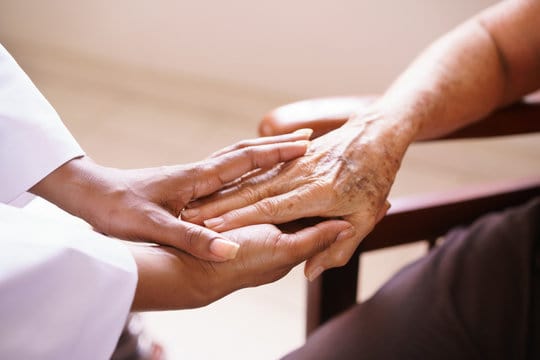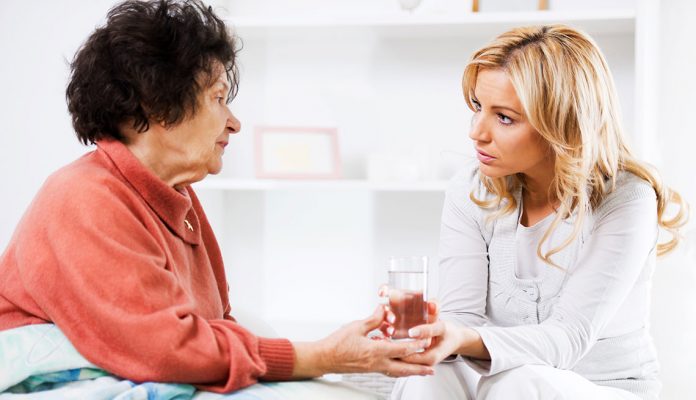So a friend has just received a serious diagnosis. You want to be supportive but you know people can be sensitive at times like this. Learn what not to say.
When a senior or boomer you care about is diagnosed with cancer or another chronic disease, people wonder how to react. There are some reactions which are much more helpful than others. When a person you know has such an illness, the whole family is shaken. Any support given to anyone in the family helps the patient also.
Ten Things Not to Say
“My ______ had that and died.” (Patients need hope more than anything so avoid horror stories.)
“You must see Dr. X, go to hospital Y or take Z vitamins, meditate, and stay away from chemotherapy. Everyone knows it’s poison.” (But chemo may save the patient’s life!)
“It could be worse!” Few would be comforted by knowing that someone else’s chance of dying is greater than theirs.

“There’ll be blessings coming out of this; you should feel lucky.” Don’t tell people how to feel; grief is normal at this time and appreciation of any blessings will come in due time.
“If you had only _________ this would not have happened.” (Fill in the blank with exercised, eaten right, or countless other things.) Even if the person was a smoker, it’s is not helpful to bring it up at this time. Besides, assigning blame for the illness is hurtful.
“If you pray, it will all work out. Just have faith.” Yes, God answers prayers; but not always the way a person might think. The patient doesn’t benefit from the added burden of being spiritually responsible for the illness. They especially don’t need to wonder if they’re being punished in any way.
“You must take charge of your health care!” While some people have the energy to be in control, others are emaciated by the disease and have a need to choose a trusted physician and trust their medical judgment. People who are seriously ill are already on emotional overload, and they aren’t aided by someone else’s agenda.

“It will all be okay. All things work together for the good. You’ll be fine.” It may, or it may not. That person doesn’t know. Bad things do happen. In fact a bad thing is happening right now to the patient and the family. They don’t need hollow promises.
“I always thought you were healthy. How could you get _____? I’m never going to let myself get that.” Acting disappointed in the patient only fosters feelings of guilt or inadequacy, adding another burden to an already impossible situation.
Some “friends” never say anything at all. They avoid the patient and family, leaving them even sadder and more alone than they are already. Perhaps this “radio silence” is the most harmful reaction of all.
Listening to a Boomer or Senior Who Has Cancer or Another Serious Illness

One of the best things to do is to listen – to the patient and to family and friends. When a person is dealing with a chronic disease, their plate is full and a willing ear is quite helpful to all concerned. Short visits can be vital since support from others is helpful even when energy is low.
The next time there is a report of a senior friend who has an unfavorable diagnosis, think before speaking. Keep in mind the effect of the words on both the patient and the family. Avoid the ten statements not to say to them; talk about the weather if necessary and listen while being encouraging.
Source: Credit goes to Debbi Racobs for the top ten things not to say, from her lay sermon in November of 2006 at Northwoods Unitarian Universalist Church at The Woodlands, Texas, which also included some ideas from a chronic disease support group at the same location.


















